With all its natural beauty, plentiful sunshine, and opportunity for year-round gardening and growing, not to mention it’s significance as the 7th largest cattle state, Florida has a lot to offer for new homesteaders.
Many people think of theme parks, beaches, the Space Coast, and retirement communities when you talk to them about Florida. But there’s so much more to the Sunshine State than the travel guides tell you.
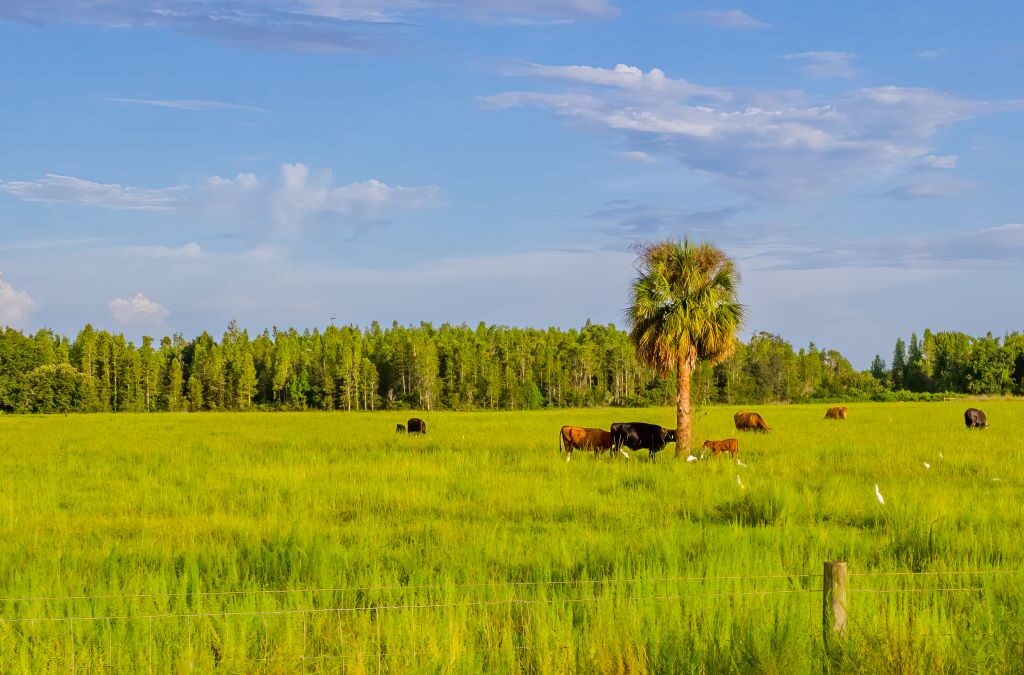
Here are 10 reasons why you should homestead in Florida -and why I do too!
(1) Florida has the ideal climate for year-round gardening and farming.
No matter where you live in Florida, from the mildly temperate north, to the sub-tropics of the center of the state, and down to the southern tropics, there’s opportunity for year-round homesteading without harsh winter weather.
While the state is known for it’s citrus, it’s also the fourth-largest producer of vegetables in the United States. Crops such as sugar cane, strawberries, tomatoes, melons, beans, blueberries, sweet corn, and peanuts are some of the largest volume comedies produced in the state.
From farms to families, people are growing produce everywhere in Florida. There’s a blueberry farm just down the road from my homestead. You can drive along many rural highways and find produce stands. A quick online search will provide a list of You-Pick farms for strawberries, blueberries, peaches, citrus, sweet corn, grapes, and many other delicious fruits and vegetables. Nurseries are abundant, providing fruiting trees, shrubs, and anything you could grow in the region.
Florida farmers and ranchers raise cattle, goats, and chickens in abundance. My homestead is surrounded by cattle pastures and several homesteads that raise sheep, goats, chickens, and cattle. Just a few miles down the road is a small organic dairy farm.
No matter what you wish to grow on your homestead, Florida’s climate makes it easier than many other places.
(2) There’s an Abundance of Sunshine.
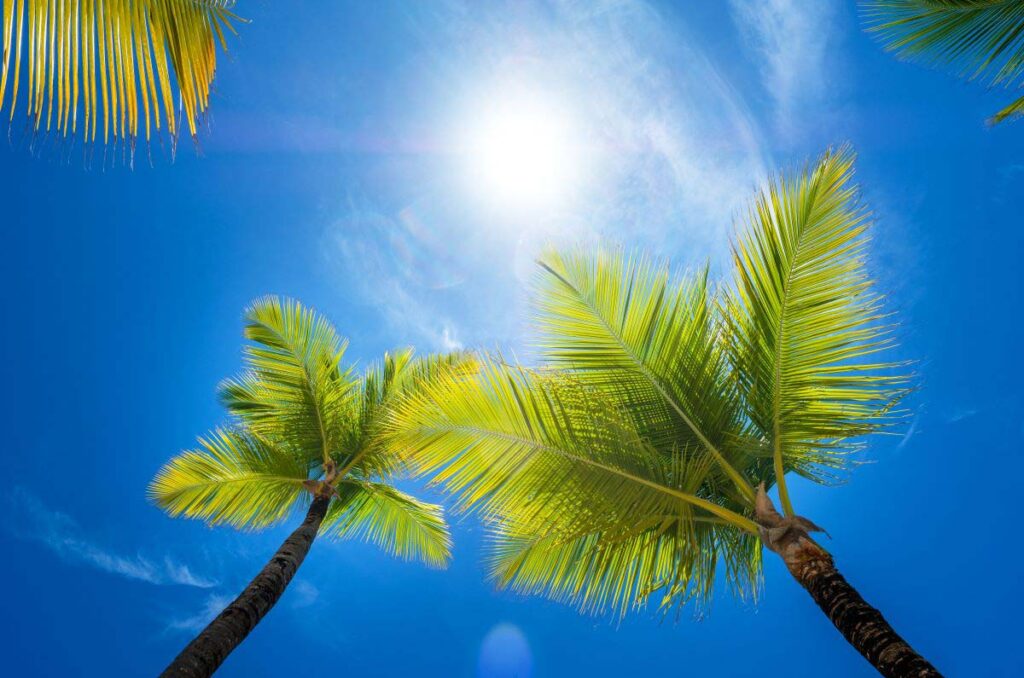
One of Florida’s nicknames is “the sunshine state.” There is an abundance of sunshine throughout the year due to Florida’s position between the Tropic of Cancer and the Equator. Also, it’s location between the Gulf of Mexico and the Atlantic Ocean offer up it’s locally known “sea breezes” that clear out much of the clouds and humidity when they blow through.
Homesteaders can take advantage of the abundant sunshine, not only for growing plants and livestock, but to use as a natural resource for energy. Solar power can easily be generated in Florida.
On our homestead we use solar power for lighting and powering small backup batteries. Eventually, we plan to use other solar-powered equipment such as solar electric fencing for our livestock. It’s one of our many frugal homesteading techniques that we use.
Whether you’re planning to go completely off-grid, or just supplement your utility bill, Florida’s abundant sunshine offers an almost limitless energy source.
(3) Florida has a rich diversity of soils.
From the red clay of the northern panhandle, to the sandy soils of the center of the state, to the peat of the Everglades, and lime rock of the southern tip, Florida soil is as varied as its many climate types.
The University of Florida’s Land Steward lists 10 broad soil types in the state. Understanding the type of soil you live on is key to a thriving homestead. Regular soil testing and recognizing climate conditions will help you thrive as a Florida homesteader.
I’ve learned over the years what my soil type is and how best to amend it to grow my fruits and vegetables. There are many local native species that you can look to as guides for how to grow in your region.
For example, where I live, the abundance of wild passionfruit (maypops) indicates that the soil would be great for growing other species of passionfruit. I now grow trellises of the sweet and tangy fruits. The native plant American Beautyberry grows wild along the hedges of my property. I have been making beautyberry jelly and syrup for years from their fruits.
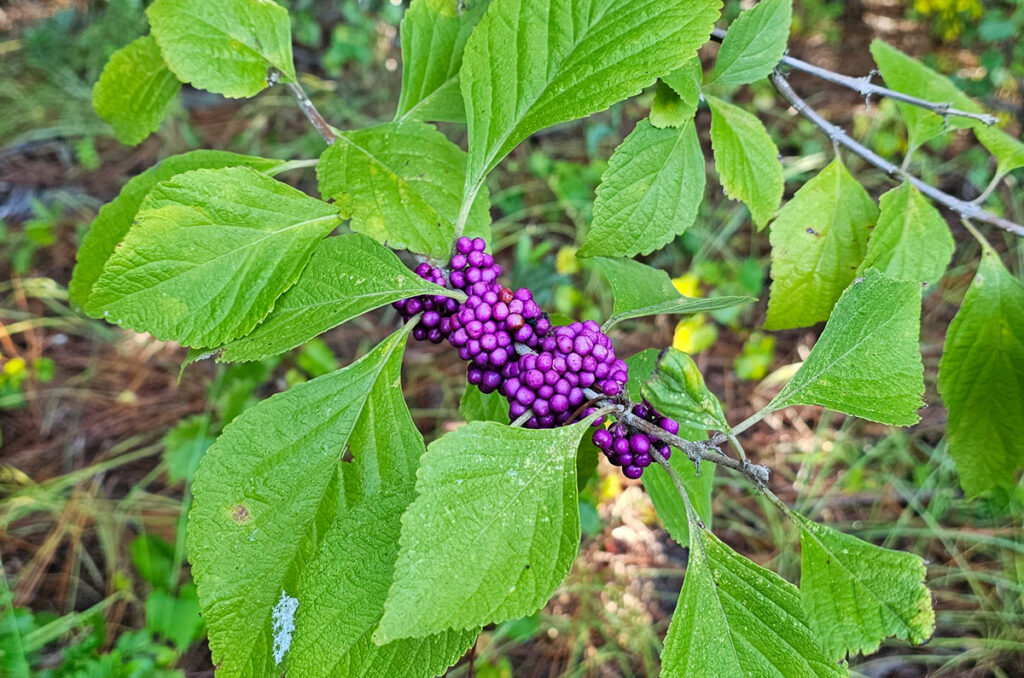
Wherever you homestead in Florida, the unique region you choose to live on will surprise you with abundance. Learn the secrets of the soil to achieve your growing success.
(4) Water resources are varied and abundant.
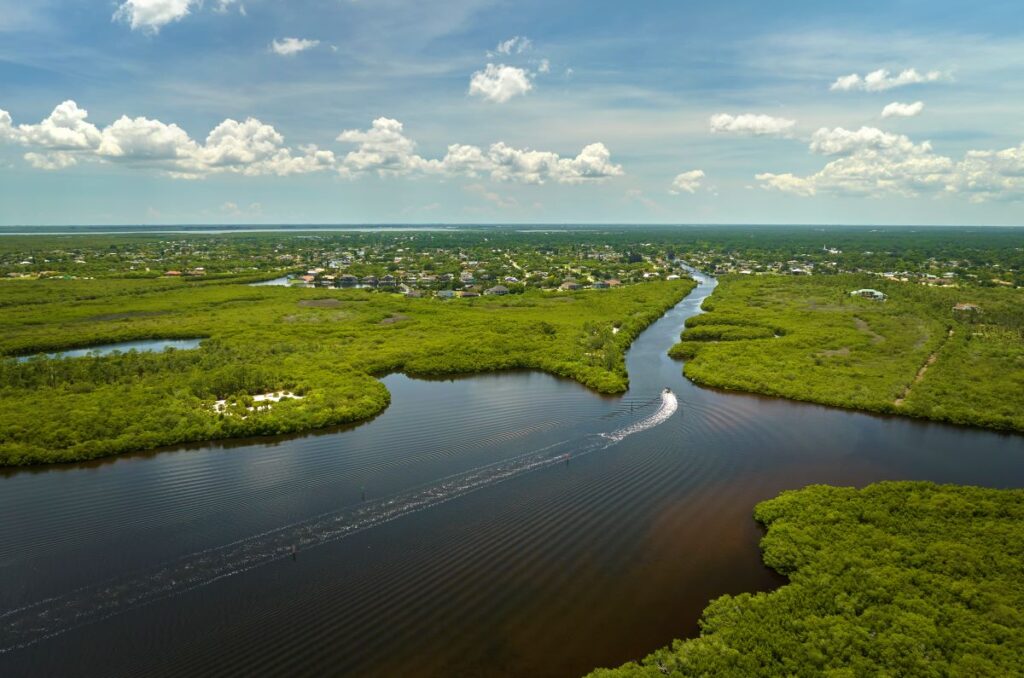
If it wasn’t called the “sunshine state,” I’m sure Florida would have been labeled “the water state.” According to the University of Florida’s Center for Aquatic and Invasive Plants:
“Florida is home to nearly 8,000 lakes, 1,700 rivers, streams, springs and spring runs, thousands of miles of man-made canals, and extensive wetlands. These waterways support a variety of natural functions such as fish and wildlife habitat and provide many human uses including navigation, recreation, irrigation, drinking water, and flood control.”
University of Florida’s Center for Aquatic and Invasive Plants
In addition to these freshwater sources, the state is practically surrounded by oceanside beaches, estuaries, and coastal water sources.
This large variety of water resources creates incredible opportunities for a modern homesteader.
If living near the ocean makes your heart sing, an oceanside homestead would be perfect for you. Instead of raising livestock, you could harvest fish, shrimp, shellfish, and similar creatures. Use the sea breezes and sunshine for renewable energy. Learn coastal foraging and find salt tolerant plants to grow on your homestead.
Freshwater rivers and lakes also provide an abundance of fish and wildlife that can enhance your homesteading experience. Wetlands can support a large variety of edible plants that can be harvested.
Water is everywhere in Florida. Use this essential natural resource wisely and take advantage of its abundance.
(5) Florida has many diverse ecosystems.
Whether you want to homestead in a forest, a prairie, scrublands, wetlands or oceanside, there’s plenty of options to develop the type of homestead that’s right for you.
Florida has 38 state forests covering over one million acres. Homesteading near a forest can provide hunting and foraging opportunities, adventurous outdoor activities, and studies have shown spending time in a forest can improve your overall health.
If you’d like to homestead along rolling hillsides, consider the panhandle and central ridge of the state. You can create a beautiful and diversified homestead in many of these places.
If you’re interested in raising cattle or similar livestock on your homestead, Florida’s various prairies and grasslands provide over one million acres for grazing. Cattle ranching has an over 500-year history in the state of Florida with many multi-generational ranches still thriving to this day.
The potential for a successful homestead can be found in any ecosystem in Florida. Determine what you want from your homestead, and you’ll naturally find the environment in Florida that’s right for you.
(6) Florida has a favorable legal environment and real estate market for homesteaders.
Compared to many other states, it’s fairly easy to buy land and set up a homestead in Florida. We had many choices available in the region we were researching before we purchased our land.
There are many things to consider when buying land, especially in a mostly flat and wet state like Florida. Some of the most important include:
- Find a realtor that specifically sells land in the region you’re considering.
- Get realtor references and a second opinion.
- Understand the local codes and zoning regulations before purchasing.
- Make sure the land is buildable before you buy.
- Do your due diligence.
(7) Homesteading communities exist all throughout the state.
If you’re looking for like-minded people, homesteaders just like you, then Florida is your place.
An easy way to find them is online. There are many groups in different social media platforms that you can join and get to know better. I am a member of several Florida homesteading groups as well as groups devoted to homesteading skills such as seed saving, backyard gardening, Florida livestock, and even a local bartering group.
Another way to find other homesteaders in your community is to attend regional homesteading meetups, fairs, and conferences. Get to know your neighbors, attend county fairs and regional festivals.
There are a lot of homesteaders in Florida. Once you start looking, you’ll find new friends that share your love of homesteading. You’ll get to share skills, stories and so much more.
(8) There are many opportunities for generating income from your homestead.
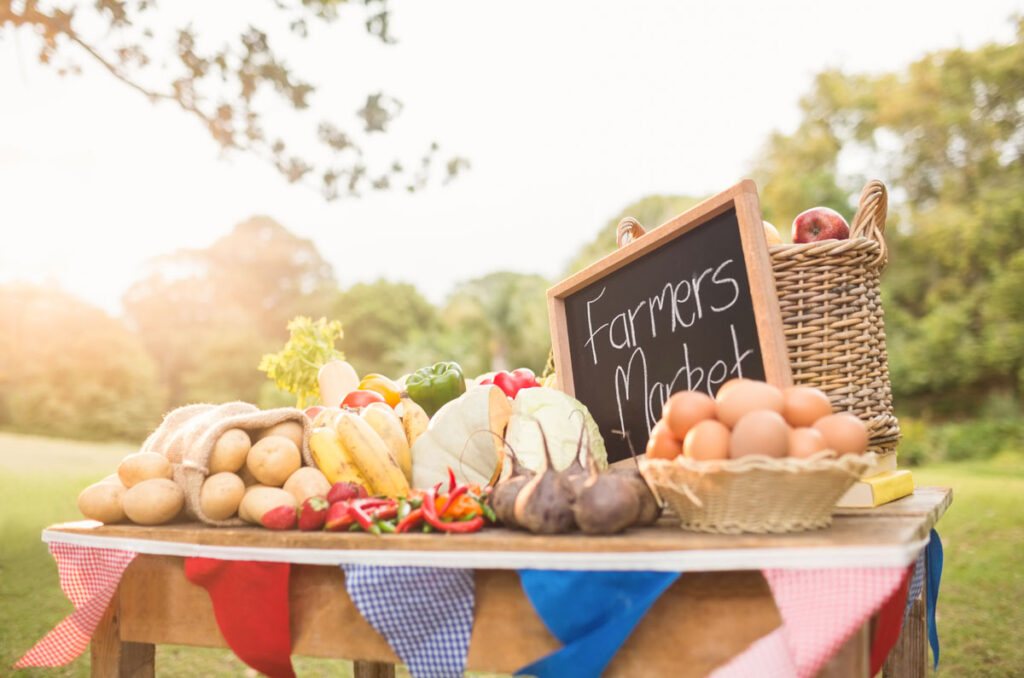
Many modern homesteaders work a day job in addition to living a homesteading lifestyle. But if you’re someone who wishes to use their homestead to either create additional income, or potentially a full-time income, then living in Florida can make it easier.
Compared to other US states, Florida has a low state sales tax, lower taxes in general, and does not have a state income tax.
There are several large urban areas spread out across the state, from Tallahassee in the north, to Miami in the south. Even if you choose an off-grid, edge of the forest homestead, you’re still not too far away from a large metro area to supply people with goods or services from your homestead.
At the time of this article’s publication, I still commute to the city to work. I drive by several fruit stands, honey and eggs for-sale signs, and similar homestead-raised products advertised for sale. Many cities have farmer’s markets and seasonal festivals that can all provide income for a market-minded homesteader.
Consider selling surplus from your homestead, handmade crafts, or cottage foods, to contribute to your self-reliance.
You could also start an agritourism business like a farm stay, Airbnb, campsite, or U-Pick farm. Create an income from your skills or services such as welding, mechanical repair, teaching, or blogging like I do.
Get creative and discover what you’re good at and enjoy doing. There are so many people in Florida who would love a handmade product, something locally grown, or the services of a skilled person.
(9) Hurricane Prepping and Self-Reliance

While it may seem counterintuitive, many people seek out and thrive on the challenge of preparing for natural disasters. Throw in tropical storm floods and another state nickname “Lightening Capital of the US” and you have the perfect recipe for a preparedness lifestyle in Florida.
Preparing for natural disasters, economic instability, personal safety, or any emergency is part of homesteading. Being proactive, resourceful, and adapting a preparedness mindset can help people survive when difficult times or unforeseen events happen.
(10) Florida is the perfect retirement destination.
For active older adults, homesteading in Florida is an attractive option. The milder climate of the state encourages year-round activity.
Seniors can engage in many homesteading activities including: gardening, small livestock care, preserving and canning, crafts, and cooking.
Senior homesteaders in Florida can share a richness of experience, and knowledge of traditional skills by becoming mentors to younger generations. Older adult homesteaders are one of Florida’s richest resources.
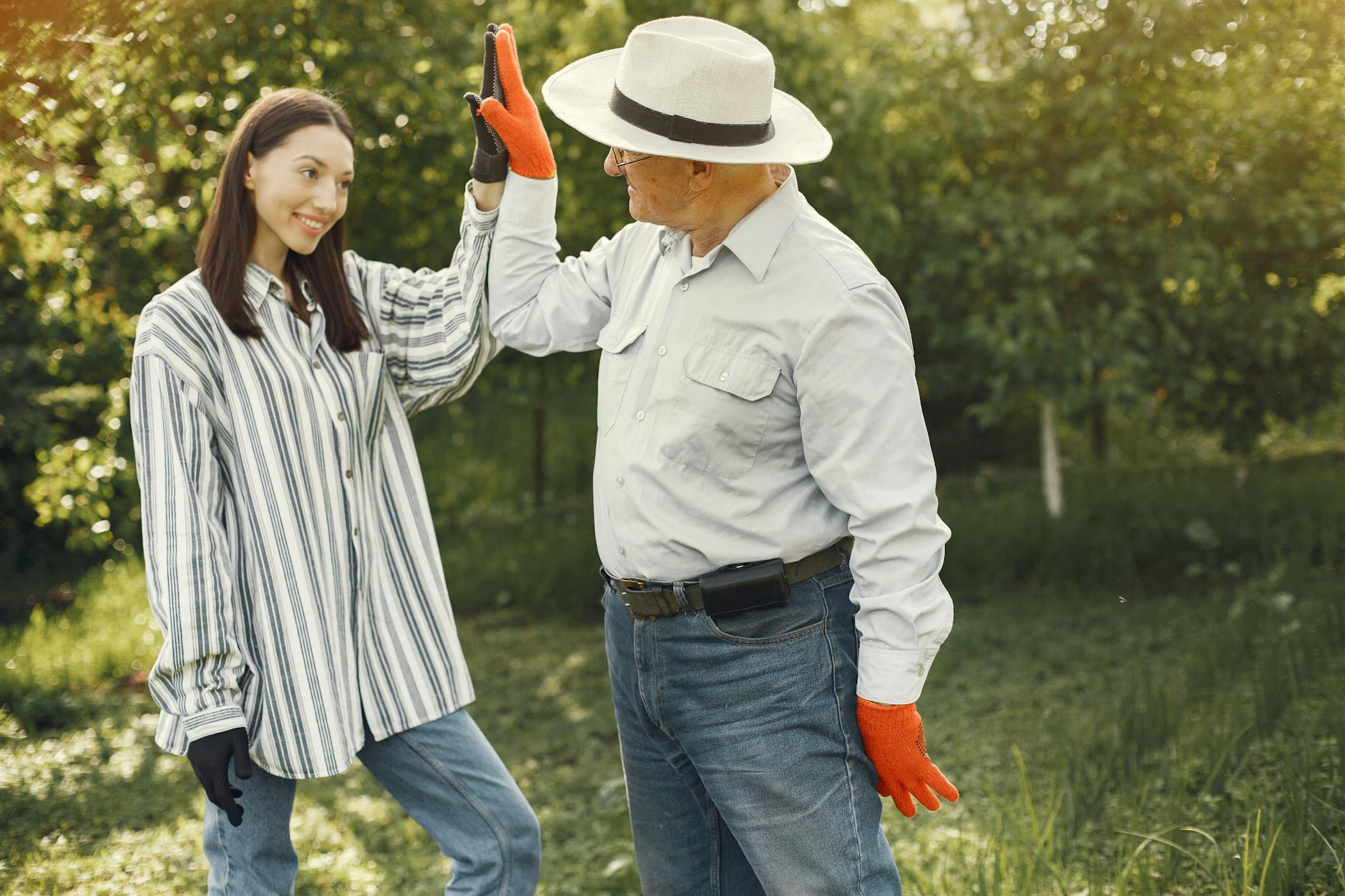
In Conclusion
So, these are my top-ten favorite reason to homestead in Florida. With the favorable climate, supportive communities, and endless opportunities to provide income from your homestead, it’s one of the best places to start homesteading.
What do you think? Leave a comment and tell me what your favorite reason is for homesteading in Florida.
Hi Alisa, my husband and I just moved to Florida from Michigan with the end goal of homesteading full-time. For now we have a landscaping business to try and gain more hands on experience about the FL climate and also become more of a holistic based company who is able to advise customers on how they can start homesteading no matter how much or little property they have to start with. As someone who has experience in this area what are some tips you can give for someone who is not used to year around farming/gardening? Do you have a good resource that shows what is in season & when to start planting different things?
Thanks, Celeste
Aspiring Homesteader & Business Owner
http://www.landscapinghomestead.com
Hi Celeste, congratulations on your move! We used to live in Michigan too, up in the “thumb.” learning to live in the subtropics is a huge learning curve. Your best resourse is the Unviversity of Florida IFAS Extension Services https://sfyl.ifas.ufl.edu/who-we-are/extension-services/ They produce a monthly calendar for home gardeners with suggestions for what to plant every month. They can also provide you with detailed information about anything you want to grow in Florida. With Florida having 3 very different growing seasons and USDA hardiness zones 8b to 11a we are quite diverse The university is your first stop to find accurate information. Look for FB groups that are in your region, network with other landscaping businesses, and visit local nurseries to get to know them and what they grow. Best of luck with your landscaping business!